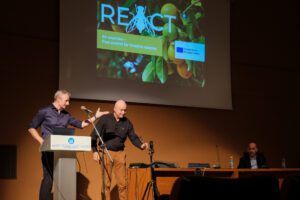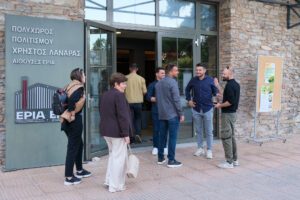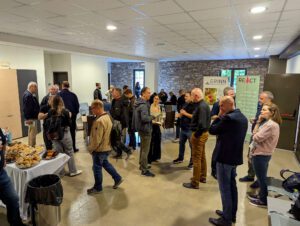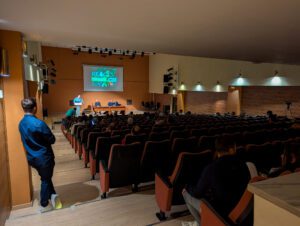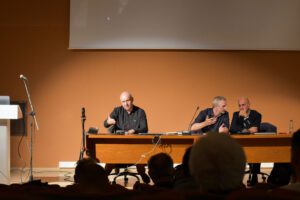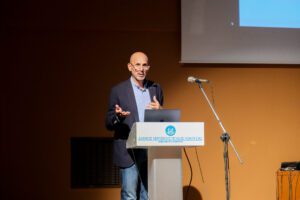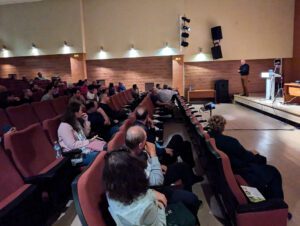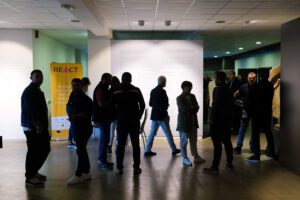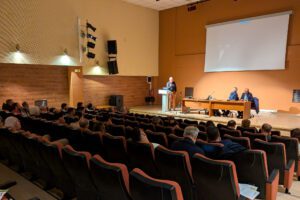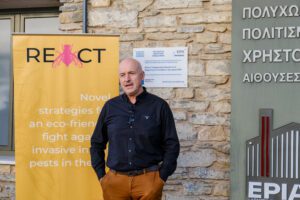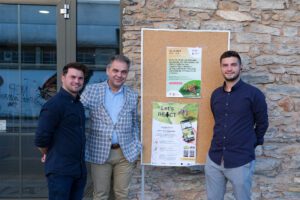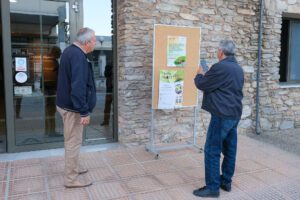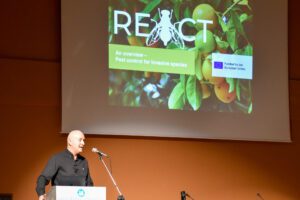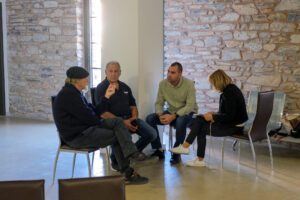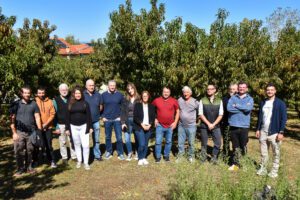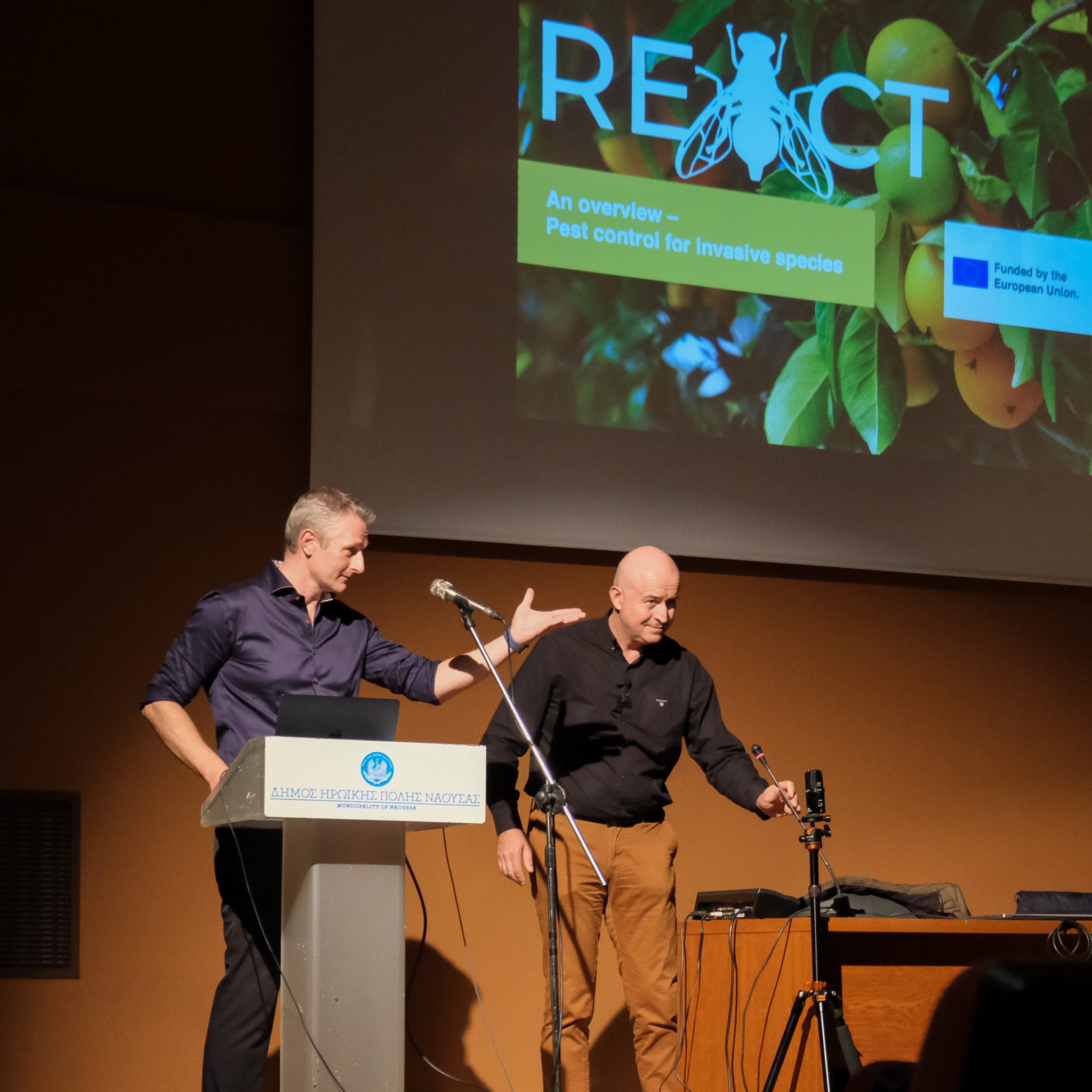
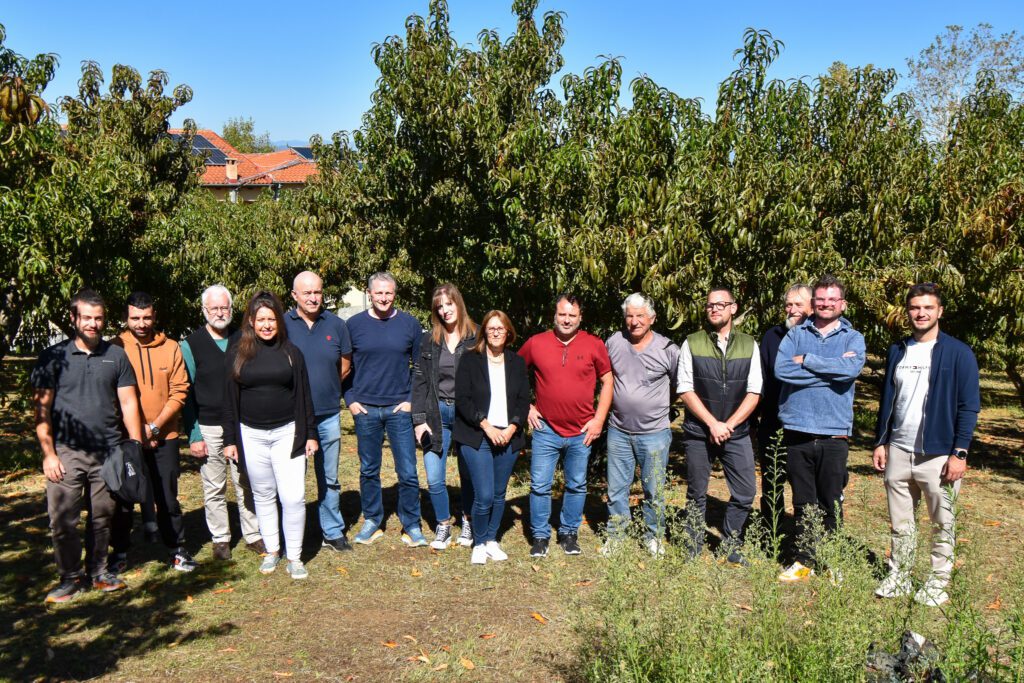
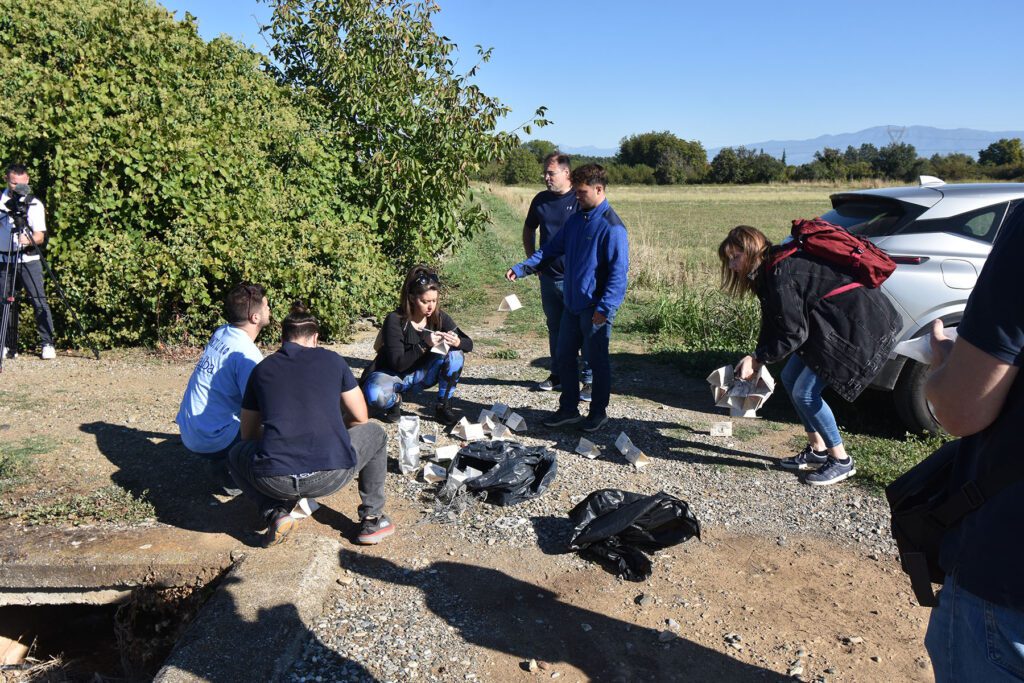
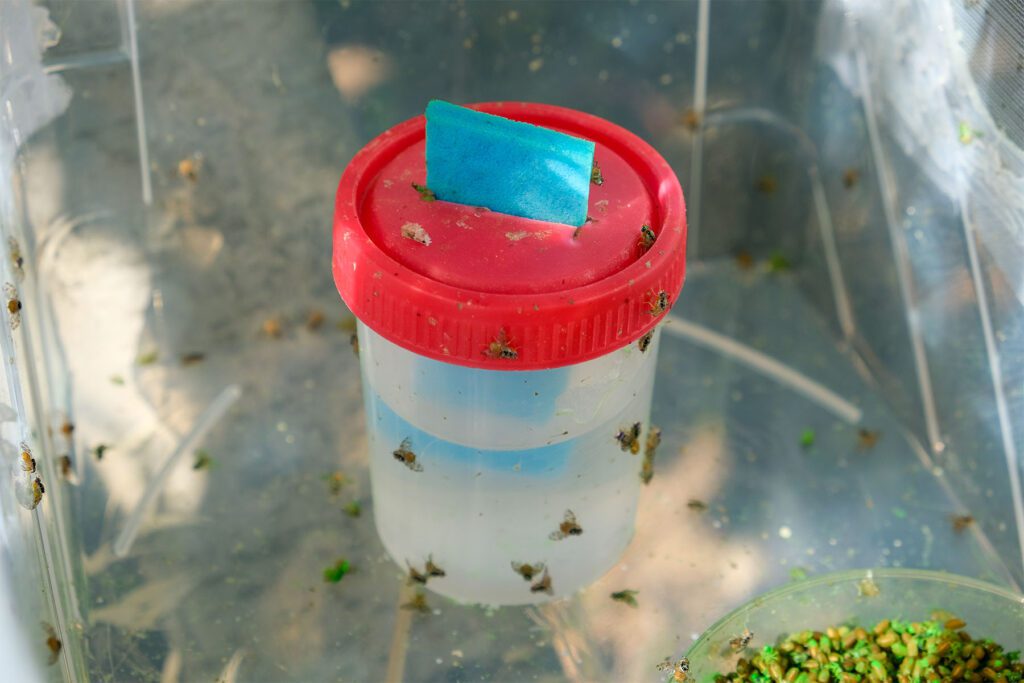
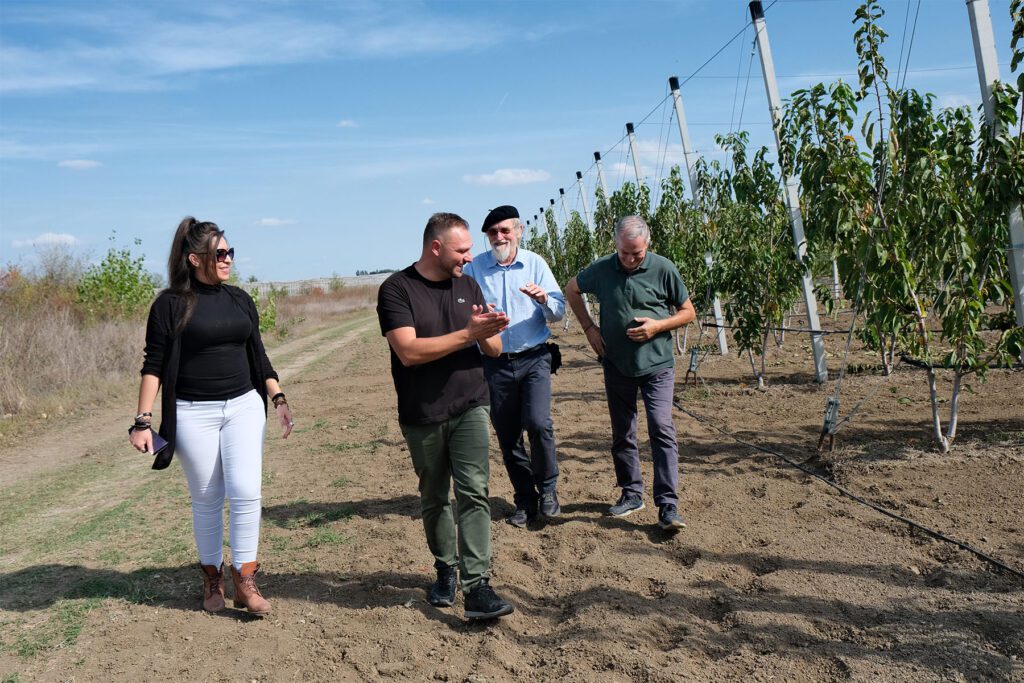
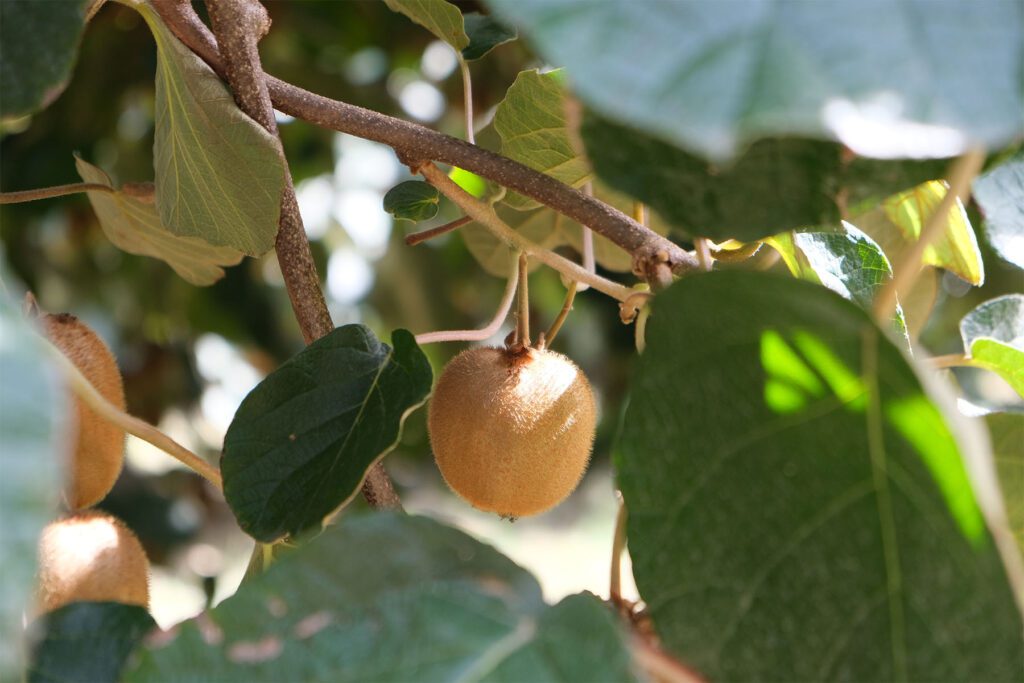
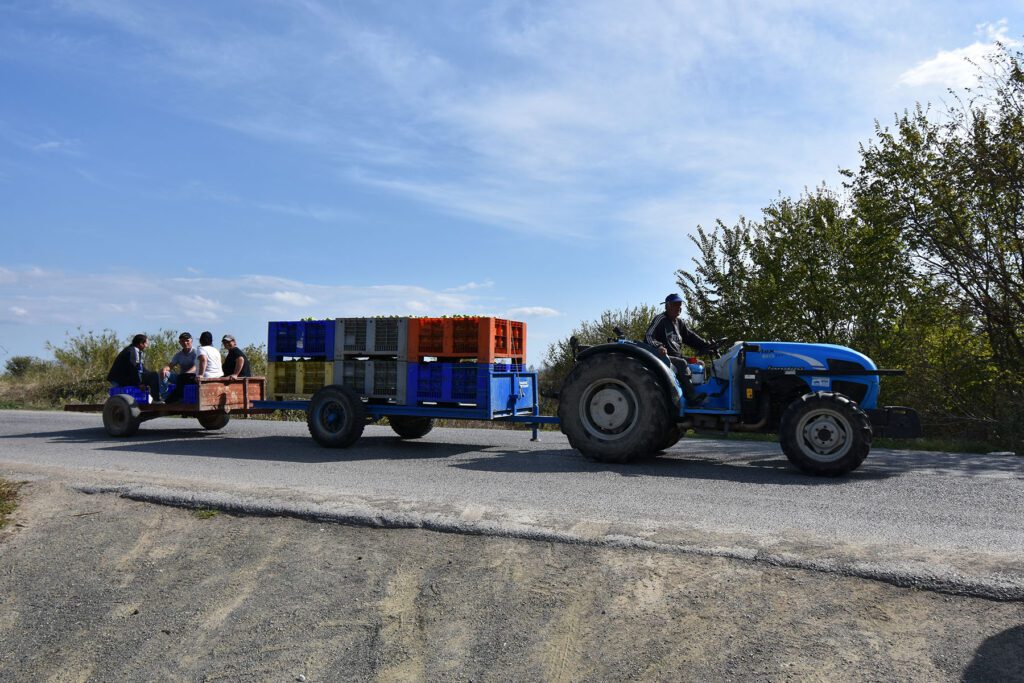
Successful Stakeholder Meeting in Naousa: REACT Project Gathers Local Support for SIT
09 Oct 2024
On October 2, 2024, the REACT project held a successful stakeholder meeting at the Eria Cultural Center in Naousa, Greece.
Around 80 farmers, agricultural advisors, fruit industry entrepreneurs, and other stakeholders gathered to learn more about the potential use of the Sterile Insect Technique (SIT) in Central Macedonia to combat invasive fruit flies.
The meeting was part of REACT’s ongoing efforts to introduce SIT, an innovative and environmentally friendly pest control method, to European agriculture. SIT involves the mass release of sterile male insects, which then mate with wild females, effectively controlling pest populations without the use of pesticides.
Marc Schetelig from the University of Giessen, project coordinator, opened the meeting by outlining the project’s status and its long-term goals. He emphasized the importance of local engagement, stating, “The success of the REACT project depends on the full integration and cooperation of the local farming communities.”
Nikolaos Papadopoulos from the University of Thessaly followed by presenting results from ongoing field trials in Northern Greece. He explained how SIT is being tested on Mediterranean fruit flies (Ceratitis capitata), whose population has been rising in the region. This trial serves as a valuable precursor for tackling two other invasive species: the peach fruit fly (Bactrocera zonata) and the oriental fruit fly (Bactrocera dorsalis).
Antonis Michailakis from the Benaki Phytopathological Institute shared success stories from the use of SIT against mosquitoes in the Attica region, underscoring its potential in Central Macedonia. His insights offered a real-world example of how SIT could be implemented on a broader scale in pest management.
Key to Success: Informing and Involving Local Farmers
The meeting was not just about sharing information—it was about involving the local farming community in the process. Farmers’ input is crucial for the success of SIT, as their collaboration will determine how effectively the technique can be integrated into existing agricultural practices. Addressing potential skepticism around SIT, Marc Schetelig noted that this was just the first in a series of stakeholder meetings designed to foster trust and open dialogue.
These meetings aim to clear up any doubts and showcase the benefits of SIT, which, while innovative, represents a significant departure from conventional pesticide-based methods.
Cost-Benefit Analysis to Assess Local Feasibility
A thorough cost-benefit analysis is another important tool being employed by the REACT team to assess the potential of SIT in Central Macedonia. Ana Carvalho from ISCTE (Lisbon) is leading this analysis, which will provide a detailed look at the financial viability of SIT for local farmers. This includes evaluating potential economic benefits such as reducing crop losses, improving market value, and avoiding trade restrictions linked to pest outbreaks.
This analysis will be instrumental in helping farmers and stakeholders understand the economic advantages of SIT, further encouraging local buy-in.
Testing SIT on MedFly: A Step Toward Larger Goals
The ongoing trials in Northern Greece target the Mediterranean fruit fly (Ceratitis capitata), a well-known pest in the region. These trials are seen as a “test balloon” for larger efforts to control even more invasive species like the peach fruit fly and the oriental fruit fly. Success in this trial could pave the way for scaling up SIT applications across Europe, addressing the growing threat these pests pose to fruit production.

